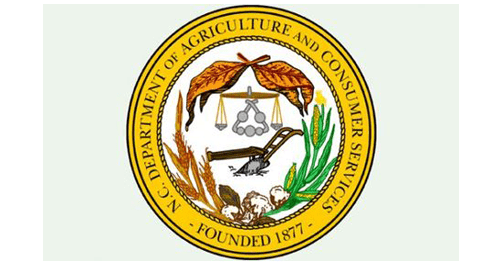Joe Reardon, NC’s Assistant Commissioner of Agriculture for Consumer Protection, was on Wednesday’s edition of WIZS’ Town Talk program to discuss the recent explosion in the marketplace of CBD oil and CBD-containing products.
Following up on a press release published in mid-February, Reardon stated that the NC Department of Agriculture and Consumer Services (NCDA&CS) is taking an “educational approach” in making producers and retailers aware of both state and federal laws regarding CBD products.
“We felt with the confusion in the marketplace and the explosion of these products, the most responsible thing the NCDA&CS could do was to educate everybody on what’s federal law, what’s state law and what our expectations of those in NC would be,” Reardon said.
CBD, or Cannabidiol, is a compound derived from the legal product hemp that lacks the psychoactive chemical levels needed to experience the proverbial “high.” According to Reardon, cbd öl should contain 0.3% or less of THC, a psychoactive cannabinoid commonly associated with traditional marijuana.
While CBD has been approved by federal and state law as a drug, Reardon explained that it cannot be legally added or infused in either human or animal food products that are for sale.
Of particular concern to the department, according to Reardon, is the illegal sale of CBD food items traditionally marketed to children including gummies, ice cream and lollipops.
CBD products can also not make health claims, including statements that the product may prevent, treat or cure any disease. Failure to comply could result in embargo or seizure of products.
“We don’t want someone making an uninformed decision,” said Reardon. “We don’t want people on prescription pharmaceuticals to discontinue their medication without consulting their physician.”
The NCDA&CS has sent out approximately 400 letters to CBD manufacturers and retailers detailing what is legal and what is illegal to sell in North Carolina. The letters are prompting phone calls and questions of officials, Reardon said.
“The encouraging thing is that in many places across the state, once we made them aware of the law, they are complying. They say they are not going to continue to order or display CBD food products and they are removing pamphlets from stores that make CBD health claims.”
Reardon said the department will evaluate the effectiveness of this initial, educational campaign and will take a more “aggressive regulatory approach” if needed.
While CBD production is currently unregulated, Reardon said the goal of the NCDA&CS is to work with the State Legislature and the industry to construct a regulatory framework for CBD product that will be sold as tinctures.
“We believe the product needs to be processed in the right environment, we believe the extraction should be done with the most appropriate chemicals and we believe there should be quality control in this process,” Reardon explained.
Until a regulatory framework is in place, Reardon suggests consumers ask questions and do their research before purchasing CBD products. “Find out who processes it, where is it being processed, is it being tested and what is the concentration of the final product.”
Industry with questions about the regulation of CBD can call the Food and Drug Protection Division at (919) 733-7366. You may also visit the NCDA&CS website by clicking here or email Reardon directly at joe.reardon@ncagr.gov.
To hear the Town Talk interview with Joe Reardon in its entirety, click here. Reardon’s segment begins at the 17:10 mark.
